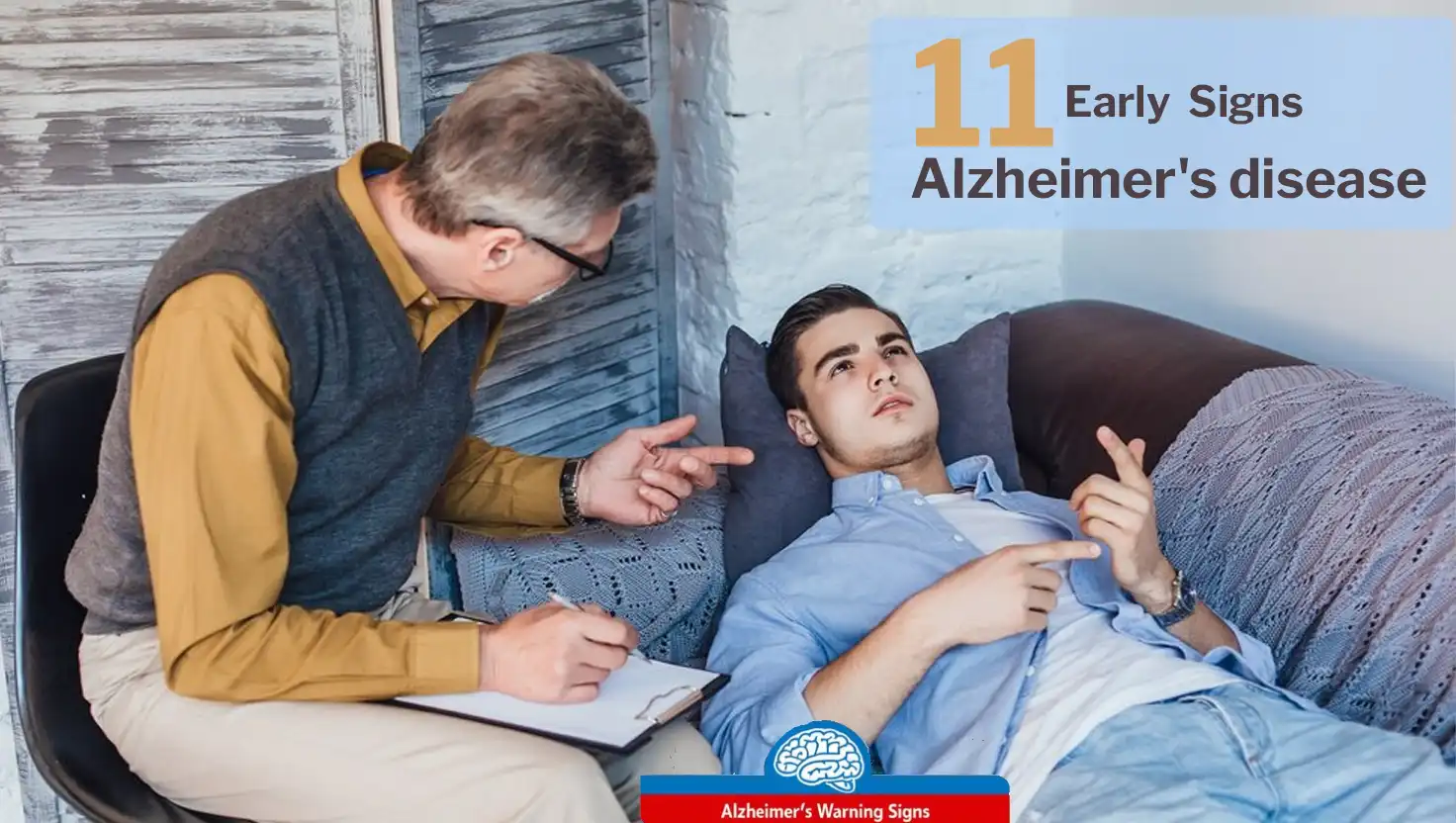Alzheimer’s disease often begins with subtle signs that can be easy to overlook. Recognizing these early warning signals is crucial for timely intervention, enabling better care and improved outcomes. From memory lapses to confusion with routine tasks, understanding the 11 Early Alzheimer’s Care Signs can empower caregivers to seek help sooner, enhancing the quality of life for their loved ones. Early detection is the first step toward effective management.
What is Alzheimer’s Disease and Why Early Detection is Important
11 Early Alzheimer’s Care Signs – When to Seek Help
Recognizing the early signs of Alzheimer’s disease can be life-changing for both the individual and their caregivers. Below are 11 detailed, informative indicators to watch for, along with insights into why they matter and when they signal the need for professional help:
1 Memory Loss
One of the first things people notice is trouble remembering stuff they just learned—like a recent conversation, an appointment, or something that happened earlier in the day. We’re not talking about the occasional “Where’d I put my keys?” moment. This is more disruptive, like asking the same question over and over or needing sticky notes for everything. It’s a big deal because it’s tied to the hippocampus, the part of the brain that handles memories. When that starts to slip, it’s often the earliest hint something’s off.
2 Trouble Planning or Solving Problems
Everyday tasks that require a bit of brainpower—like figuring out a budget, following a recipe, or keeping a schedule—can suddenly feel overwhelming. Someone might stare at a checkbook for ages or just give up on cooking dinner. It’s not just about taking longer; it’s like the steps don’t click anymore. This happens because Alzheimer’s hits the brain’s executive function early on—the ability to think things through and stay organized.
3 Getting Confused About Time or Place
Ever met someone who’s totally lost track of what day it is or thinks it’s morning when the sun’s already set? That’s common here. They might even wander off in a familiar spot and not know how they got there. It’s more than just a brain fart—it’s the brain struggling to process time and space, which starts breaking down as Alzheimer’s creeps in.
4 Struggles with Vision and Space
Some folks start having a hard time with things like reading small print, guessing how far away something is, or even telling colors apart. It might show up as tripping on stairs or swerving while driving because distances feel off. This isn’t just aging eyes—it’s the parietal lobe, the brain’s spatial navigation center, starting to falter, which Alzheimer’s often messes with.
5 Trouble Finding Words or Talking
Ever catch someone fumbling for a word—like calling a watch a “hand-clock”—or trailing off mid-sentence? They might repeat themselves or zone out during a chat because they can’t keep up. It’s frustrating, and it’s a clue the left temporal lobe, the brain’s language hub, is taking a hit. That’s a key area Alzheimer’s likes to target early.
6 Losing Stuff All the Time
Misplacing things happens to everyone, but this is next-level—like finding your phone in the fridge or your keys in a drawer and having no idea how they got there. Worse, they can’t backtrack to figure it out. It’s a sign memory’s slipping, sure, but it’s also about losing the ability to organize thoughts, which Alzheimer’s chips away at.
7 Making Bad Calls
You might notice someone falling for a scam they’d have spotted a mile away before, or showing up in pajamas when it’s freezing out. Maybe they blow money on something impulsive they’d never have touched in the past. It’s the frontal lobe—the brain’s decision-making and self-control center—starting to weaken, and Alzheimer’s loves to mess with that.
8 Dropping Out of Social Stuff
Hobbies, meetups, even a casual coffee with friends—someone might just stop showing up. It could be they’re embarrassed about forgetting names or can’t follow the conversation anymore. This pullback isn’t just shyness; it’s tied to the cognitive slip and emotional shifts Alzheimer’s brings, and it can really shrink their world.
9 Mood Swings or Personality Shifts
Out of nowhere, someone might get cranky, anxious, or even paranoid—like insisting someone stole their wallet when it’s just misplaced. A bubbly person could turn quiet or suspicious. It’s not just a bad day; it’s Alzheimer’s tweaking the amygdala and other brain spots that keep emotions in check.
10 Trouble Making Sense of What They See
This goes beyond spacing out—it’s stuff like not recognizing a familiar face, misreading a stop sign, or thinking their reflection’s a stranger. Navigating their own house might even get tricky. It’s another sign the brain’s visual and spatial processing is getting scrambled, and Alzheimer’s is spreading its reach.
11 Struggling with Daily Tasks
Paying bills on time, cooking a go-to meal, or keeping meds straight—things they used to do without thinking—can turn into a mess. It’s not laziness; it’s the brain losing its grip on routine memory and the ability to juggle tasks. That’s a classic early red flag for Alzheimer’s. For practical tips, explore Daily Routine for Alzheimer’s Care
When to Seek Help for Alzheimer’s Care
If you notice one or more of these signs consistently, it’s time to consult a healthcare professional. A doctor can perform cognitive tests, review medical history, and order imaging or lab tests to confirm a diagnosis. Early evaluation, supported by resources like Dementia Care San Diego, helps rule out other treatable conditions and provides clarity on whether Alzheimer’s or another form of dementia is present. Don’t delay—prompt action ensures better preparation and care.
How Early Detection Can Improve Alzheimer’s Care
Catching Alzheimer’s early offers significant advantages. Medications like cholinesterase inhibitors can temporarily ease symptoms, while lifestyle changes—such as those discussed in Fifteen Minutes of Exercise for Health Benefits—may slow progression. Early diagnosis also allows families to plan legally and financially, explore clinical trials, and build a robust support network through Caregiver Resources Information Wellness. Most importantly, it gives the person affected a voice in their care decisions, preserving dignity and autonomy for longer.
What to Do When You Notice Alzheimer’s Symptoms
If you spot early signs, take these steps:
- Document Symptoms: Note specific incidents and their frequency to share with a doctor.
- Consult a Professional: Schedule an appointment with a neurologist or geriatrician for a thorough assessment.
- Build a Support Plan: Involve family, explore care options like Home Caregiver Services, and connect with Alzheimer’s support groups.
- Educate Yourself: Learn about the disease to better advocate for your loved one, starting with Dementia Care Plan.
Acting quickly ensures you’re proactive rather than reactive as symptoms evolve.
Alzheimer’s Care Options: What to Expect
Care options vary by disease stage:
- Home Care: Ideal for early stages, with family or hired aides assisting with daily tasks—learn more at Types of In-Home Care.
- Assisted Living: Offers structured support for those needing help with routines but not full-time care—compare options in Assisted Living vs. Home Care.
- Memory Care Units: Specialized facilities for advanced Alzheimer’s, providing 24/7 supervision and tailored activities—see costs at What is the Average Cost of Memory Care in California.
Choosing the right setting depends on the individual’s needs, safety, and progression. Early planning, guided by Care Management and Advocacy, helps caregivers align care with their loved one’s preferences.
Conclusion
Spotting the 11 early Alzheimer’s Care Signs—memory loss, confusion, poor judgment, and more—can make all the difference in managing this disease. Caregivers play a pivotal role in observing these changes and seeking help promptly. Early detection opens doors to better treatment, planning, and support through resources like Nursing Care Plan for Alzheimer’s Disease. Don’t wait—reach out to an Alzheimer’s specialist for a personalized care plan today, or explore Finding Home Care for a free checklist on early Alzheimer’s signs to stay informed and prepared.


